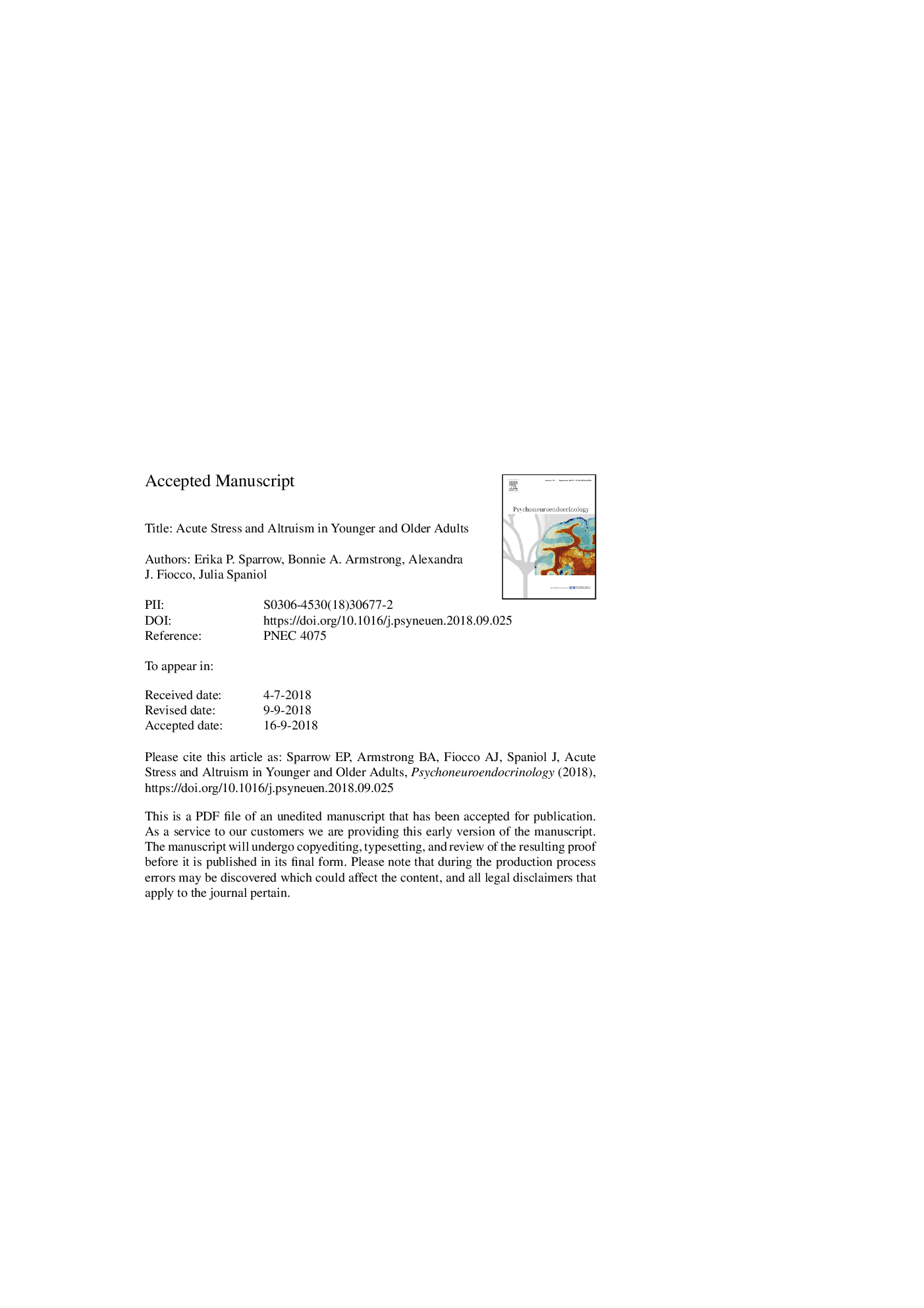| Article ID | Journal | Published Year | Pages | File Type |
|---|---|---|---|---|
| 10307407 | Psychoneuroendocrinology | 2019 | 31 Pages |
Abstract
Recent studies of aging and decision making suggests that altruism increases with age. It is unclear, however, whether this pattern holds when choices are made under stress, as is often the case in real-world scenarios. The current study used an intertemporal choice task in which younger and older adults received a financial endowment before making a series of consequential intertemporal decisions involving gains, losses and charitable donations. Preceding the choice task, participants were exposed to a laboratory stressor. Physiological stress reactivity was a predictor of altruistic decision making in younger adults, such that individuals with higher stress reactivity made more generous choices. Older adults showed higher altruism than younger adults overall, with altruism unrelated to stress reactivity in older adults. These findings are consistent with an age-related change in the mechanisms underlying altruistic behavior.
Related Topics
Life Sciences
Biochemistry, Genetics and Molecular Biology
Endocrinology
Authors
Erika P. Sparrow, Bonnie A. Armstrong, Alexandra J. Fiocco, Julia Spaniol,
